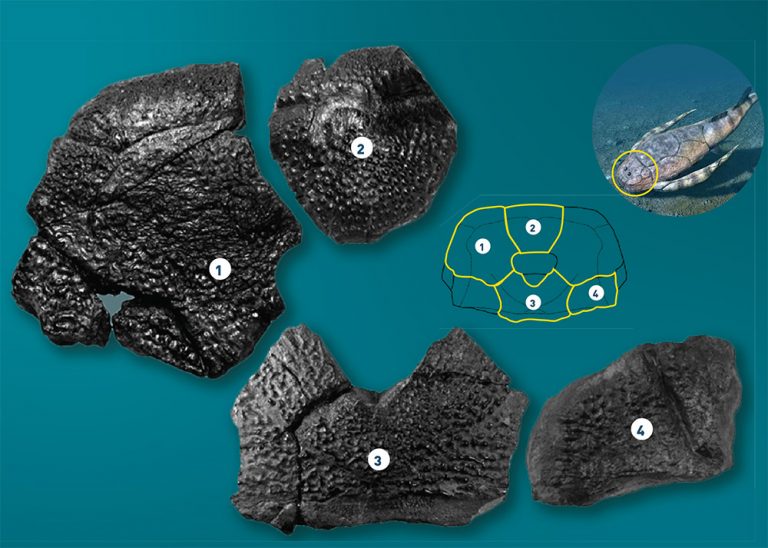
INTRODUCING B. REX.
Prehistoric Life
You’ve heard of T. rex. But what about B. rex? Scientists from the Academy of Natural Sciences were part of a team that described Bothriolepis rex, a new giant in the group Antiarchi, which are extinct fish with external, bony armored plates covering their head, shoulders and front fins. The researchers identified the new fish from fossils first discovered in 2000 on Ellesmere Island in Nunavut, Canada.
Gauging Google Glass
Biomedical engineering
Recently published in Frontiers in Human Neuroscience, a team of Drexel biomedical researchers measured how brains perform while using “smart” eyewear like Google Glass. Using a portable functional near-infrared spectroscopy, or fNIRS, device, they measured the brain activity of participants navigating a college campus outdoors in a test of Google Glass vs. Google Maps. Researchers found that users using Google Glass had lower mental workload and trended toward higher situation awareness relative to their peers navigating with Google Maps on an iPhone.
Danger is Skin Deep
Medicine
A study from the College of Medicine shows skin cancer risk for organ transplant recipients — which increases due to the side effects of anti-rejection medications — likely differs between races/ethnicities, representing an important shift in how dermatologists approach minority patients. Doctors should keep these unique characteristics in mind when examining and counseling nonwhite patients about prevention strategies, says Christina Lee Chung, MD, associate professor of dermatology and the study’s principal investigator. “People of color are at decreased risk for skin cancer, they’re not not at risk,” she says.
Mismatched Cuisine
Hospitality and Sport Management
Chefs: Avoid creating appetizers that overshadow the main course. A recent study led by Drexel food science researcher Jacob Lahne found that a main course may be negatively affected by an appetizer that is “too good.” But, by actively varying dishes by cuisine type (e.g. Italian, Thai, etc.), a negative response to the overall meal could improve, or be avoided altogether.
The Mighty Macrophage
Biomedical Engineering
A study from the College of Medicine shows skin cancer risk for organ transplant recipients — which increases due to the side effects of anti-rejection medications — likely differs between races/ethnicities, representing an important shift in how dermatologists approach minority patients. Doctors should keep these unique characteristics in mind when examining and counseling nonwhite patients about prevention strategies, says Christina Lee Chung, MD, associate professor of dermatology and the study’s principal investigator. “People of color are at decreased risk for skin cancer, they’re not not at risk,” she says.




